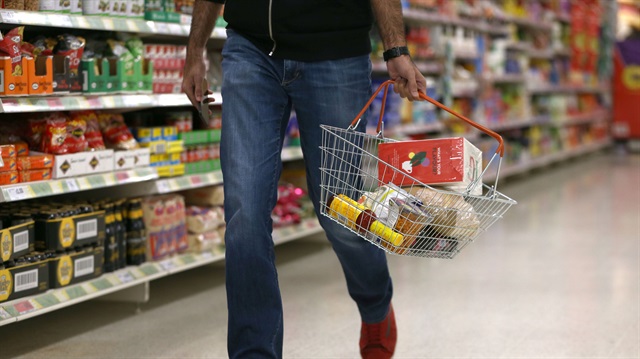

A shopper carries a basket in a supermarket in London
British inflation jumped unexpectedly to a six-month high in August, pushed up by bigger-than-usual seasonal increases in sea and air fares and higher theatre admission prices, official data showed on Wednesday.
Consumer price inflation rose at an annual rate of 2.7 percent in August, compared with 2.5 percent in July, the Office for National Statistics said, above all forecasts in a Reuters poll of economists that had pointed to a fall to 2.4 percent. The ONS also said British house prices rose at the weakest annual rate in nearly five years, dragged down by the biggest drop in London house prices since 2009.
Wednesday's figures are likely to surprise Bank of England officials who last month raised interest rates for the second time since the financial crisis and signalled only a gradual rise in borrowing costs in the coming years. Last week the BoE said it expected inflation to cool to 2.4 percent in August. The rise in inflation in August could present a setback to the modest recovery in real-terms wage growth that has helped to support economic growth this year. The fall in the value of the pound in August on renewed concerns about Brexit deprived consumers of the benefit of a fall in oil prices in annual terms, the ONS figures showed.
"Consumers paid more for theatre shows, sea fares and new autumn clothing last month," ONS statistician Mike Hardie said. The BoE expects inflation will drift down to just above its 2 percent target in two years' time as it gradually raises borrowing costs.
Consumer price inflation hit a five-year high of 3.1 percent in November, when the inflationary effect of the pound's tumble after Brexit vote in June 2016 reached its peak. The ONS said house prices in July rose by an annual 3.1 percent across the United Kingdom as a whole compared with 3.2 percent in June -- the weakest increase since August 2013. House prices in London alone fell 0.7 percent year-on-year in July, the biggest drop since September 2009.
#Inflation
#UK


